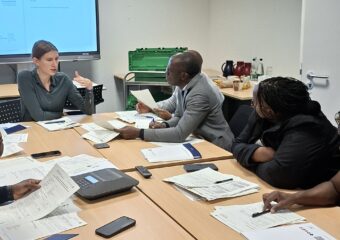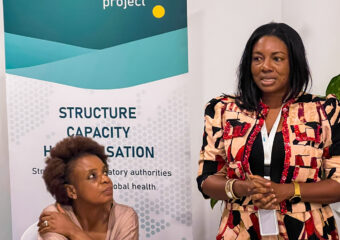Surveillance of Antimicrobial Resistance in Namibia
A team from the Namibia Institute of Pathology visiting the Robert Koch Institute: The aim was to exchange information on antimicrobial resistance surveillance systems in Namibia and Germany and to analyse relevant data from Namibia with R to strengthen the country’s surveillance.
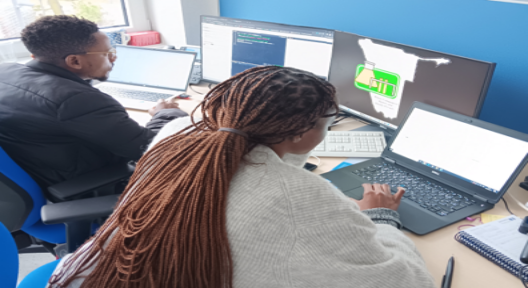
The TwiNit 2 project is part of the Global Health Protection Program (GHPP). The work package 6 of the project aims to combat antimicrobial resistance (AMR) and to promote infection prevention and control (IPC). In collaboration with the Ministry of Health and Social Services (MoHSS), the Namibia Institute of Pathology (NIP) – Windhoek Central Reference Laboratory (WCRL) is co-leading the AMR surveillance in Namibia. The unit FG37 for nosocomial infections, surveillance of antibiotic resistance and consumption at the Robert Koch Institute (RKI) works closely with the NIP, the largest provider of laboratory diagnostics, and offers technical support.
Employing the ‘One Health’ approach to tackle AMR in Namibia, the MoHSS and the Ministries of Agriculture and Environment launched the National AMR Action Plan (NAAP) in 2020. This action plan emphasises the need to close gaps in the implementation of reliable AMR surveillance in Namibia.
The NIP has a large database with the results of bacterial isolates and AMR tests collected at the National Reference Laboratory and at NIP laboratories countrywide. These data will be systematically analysed and interpreted to inform decisions on the implementation of NAAP activities at both policy and hospital level for rational antibiotic therapy.
AMR expert workshop and data analysis support
To provide technical support and capacity building, a one-week AMR expert workshop and a six-week visit of four NIP scientists to the RKI were organised. The workshop took place from the 12 to 16 February 2024. It brought together the NIP-WCRL clinical microbiology team and the RKI team from FG37 to share knowledge on AMR surveillance systems and to develop a plan for analysing the NIP AMR data.
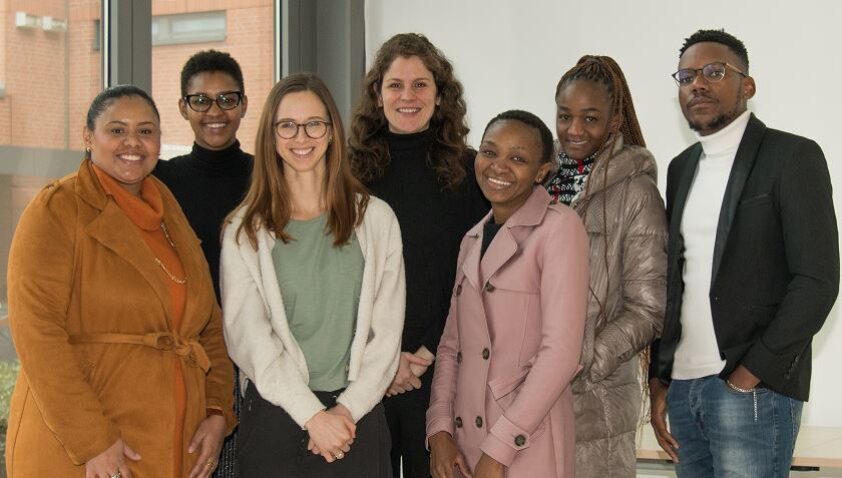
Subsequently, two of the visiting scientists stayed at the RKI until the end of March 2024 to analyse AMR data from the NIP. For the first two weeks, they were introduced to the statistical software R, followed by four weeks of practical data analysis. This included data validation, data cleaning and analysis of bacterial isolates and resistance profiles.
The preliminary AMR results were presented at the national One Health ‘AMR Stakeholder Meeting’ in Namibia from 17 to 19 April 2024. Around 110 experts from various fields took part. This included representatives from hospitals, universities, laboratories, and international organisations. The AMR data presented was received with great interest, especially among hospital representatives, as it provides an important basis for the management of patients with infectious diseases.
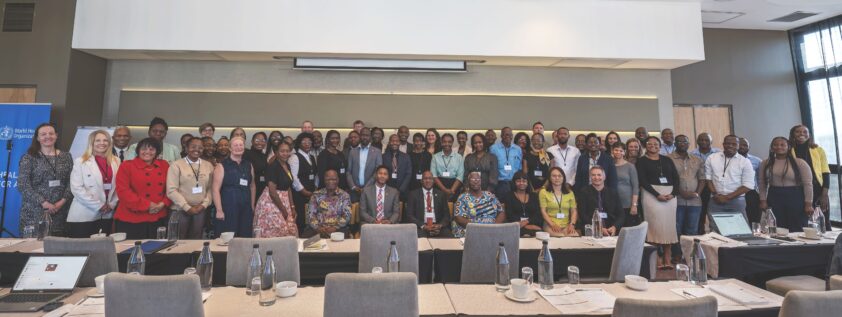
Further project planning 2024
The analysis of existing AMR data is crucial for the further development of the national AMR surveillance programme. Future steps include expanding the analysis to all available data from 2019 to 2023. This also involves conducting advanced data analysis from, i.e. intensive care units of the clinics in the various Namibian regions. One NIP scientist will complete a master’s thesis in this area. In addition, automated data reports for hospitals, so-called antibiograms, are to be developed to support the rational use of antibiotics.

